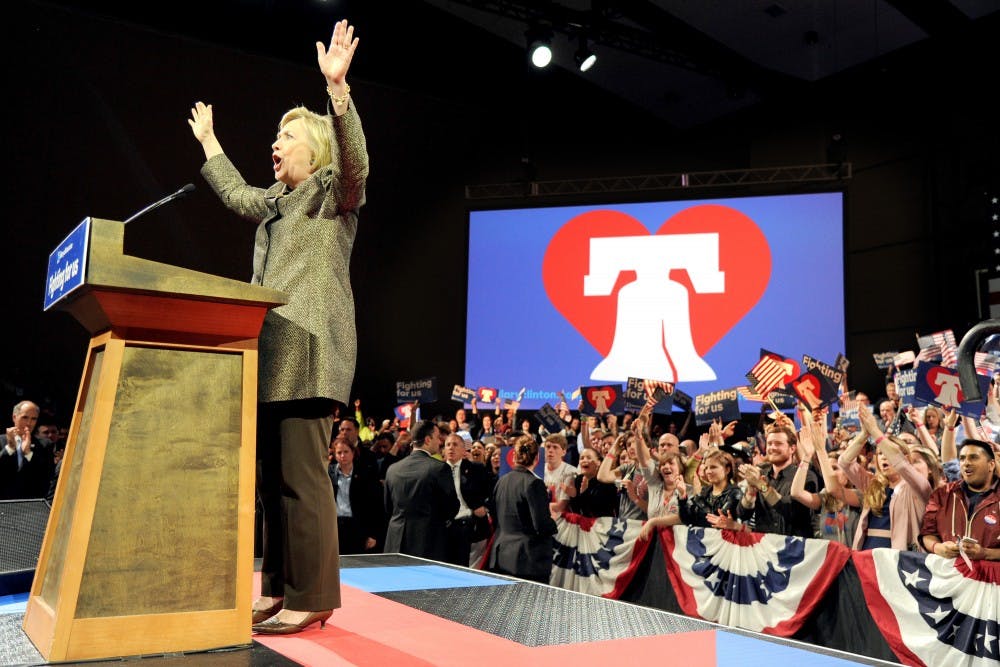Scorecard
- Clinton now has at least 2,141 delegates to Sanders' 1,321, with 2,383 needed to win.
- Those totals include both pledged delegates from primaries and caucuses and superdelegates, the party insiders who can back the candidate of their choice regardless of how their state votes.
- She won at least 194 delegates Tuesday, and Sanders 129.
- Trump beefed up his delegate numbers at least to 950, with 1,237 the magic number to clinch, so he needs as many as 287 in remaining contests. Cruz had at least 560 delegates; Kasich, 153.
- In short, Trump has a distinct path to winning the nomination before July but little room for missteps.
WASHINGTON (AP) — Hillary Clinton left Bernie Sanders in need of a miracle of miracles. Donald Trump declared himself the presumptive Republican nominee, a presumptuous label but one he might grow into sooner than expected if he can pull off more primaries like the latest round.
Tuesday was very good to the presidential front-runners. Now it's on to Indiana on May 3.
STATE OF PLAY
Trump swept all five East Coast races; Clinton took four, leaving Sanders only with Rhode Island.
The Republican billionaire's strong performance yielded a rich delegate bounty that improved his odds of clinching the nomination during the 10 GOP races left on the calendar — crucially avoiding a struggle for a majority at a contested July convention. But it may take only a few rude shocks for that chaotic climax to develop.
Clinton, in contrast, has broken well into the clear. With her wins Tuesday in Connecticut, Pennsylvania, Delaware and Maryland, she is 90 percent of the way toward clinching the Democratic nomination. Trump, who won the same states plus Rhode Island, is about 77 percent of the way.
Here's the mountain Sanders would have to climb: He needs to win more than 81 percent of the remaining delegates and uncommitted superdelegates. He's only been winning 38 percent.
CURVEBALLS
The Tuesday contests were closed for Democrats and Republicans, meaning no flood of independents, and Sanders recognized that as a handicap.
The Pennsylvania race was an enigma wrapped in the mystery of the GOP contest. Most of the GOP delegates — 54 — were directly elected by voters, with their names listed on the ballot but no information about which candidate they support and no obligation for them to have to line up with one of them. Trump won 17 delegates allocated to the statewide winner of the popular vote.
Where the rest will go is not known, and they could be determinative if Trump gets within range of a majority during the primaries but stays short of it.
YOU KNOW WHAT THEY SAY ABOUT POLITICS
It makes strange bedfellows. After Tuesday, a new alliance will make its debut as John Kasich steps back in the May 3 Indiana primary to let Ted Cruz soak up the anti-Trump vote. In return, Cruz will essentially let Kasich have at Trump in New Mexico and Oregon later in the calendar. It's a late-in-the-game compact to crystallize anti-Trump sentiment instead of having the voters who don't like him split between two other choices.
It's unclear how far each partner in the arrangement will go to clear the path for the other. They are both pulling back on campaign events in the states they are supposedly ceding to the other. But Kasich said people in Indiana who like him ought to vote for him anyway.
SENATE SCRAMBLE
It wasn't all about the White House.
Rep. Chris Van Hollen won the Democratic nomination for U.S. Senate in Maryland after a long and heated primary against Rep. Donna Edwards for the seat opening due to Sen. Barbara Mikulski's retirement at the end of her term.
In Pennsylvania, Democrats backed their party establishment's choice for a U.S. Senate candidate and rejected an ex-congressman who nearly won the office six years ago.
Katie McGinty, a former state and federal environmental policy official who got millions in dollars from the party to run her campaign, received the endorsements of top Democrats from President Barack Obama on down. She defeated second-time candidate Joe Sestak, a retired Navy admiral the party didn't consider a team player. Two other candidates finished far behind.





